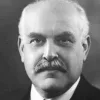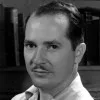For with the truth, all the given facts harmonize; but with what is false, the truth soon hits a wrong note.
[τῷ μὲν γὰρ ἀληθεῖ πάντα συνᾴδει τὰ ὑπάρχοντα, τῷ δὲ ψευδεῖ ταχὺ διαφωνεῖ τἀληθές.]
Aristotle (384-322 BC) Greek philosopher
Nicomachean Ethics [Ἠθικὰ Νικομάχεια], Book 1, ch. 8 (1.8, 1098b.11) (c. 325 BC) [tr. Bartlett/Collins (2011)]
(Source)
(Source (Greek)). Alternate translations:With what is true all things which really are are in harmony, but with that which is false the true very soon jars.
[tr. Chase (1847), ch. 6]For with a true theory all facts agree, while with what is false truth is quickly found to conflict.
[tr. Williams (1869)]For while all, experience harmonizes with the truth, it is never long before truth clashes with falsehood.
[tr. Welldon (1892)]For all experience harmonizes with a true principle, but a false one is soon found to be incompatible with the facts.
[tr. Peters (1893)]For with a true view all the data harmonize, but with a false one the facts soon clash.
[tr. Ross (1908)]For if a proposition be true, all the facts harmonize with it, but if it is false, it is quickly seen to be discordant with them.
[tr. Rackham (1934)]For all the data are in tune with a true view, whereas they soon clash with a false one.
[tr. Reeve (1948)]For all things which belong to it are in harmony with a true [definition of it], but truth is soon bound to clash with a false [definition of it].
[tr. Apostle (1975)]Because if a statement is true all the data are in harmony with it, while if it is false they soon reveal a discrepancy.
[tr. Thomson/Tredennick (1976)]For all the data harmonize with the truth, but soon clash with falsity.
[tr. Crisp (2000)]
Quotations about:
data
Note not all quotations have been tagged, so Search may find additional quotes on this topic.
The individual source of the statistics may easily be the weakest link. Harold Cox tells a story of his life as a young man in India. He quoted some statistics to a Judge, an Englishman, and a very good fellow. His friend said, “Cox, when you are a bit older, you will not quote Indian statistics with that assurance. The Government are very keen on amassing statistics — they collect them, add them, raise them to the nth power, take the cube root and prepare wonderful diagrams. But what you must never forget is that every one of those figures comes in the first instance from the chowty dar (village watchman), who just puts down what he damn pleases.”
Josiah Stamp (1880-1941) English industrialist, economist, statistician, banker
Some Economic Factors in Modern Life (1929)
(Source)
Quoting Harold Cox (1859-1936), English economist and politician.
The whole truth would be an infinite concatenation of mostly irrelevant facts, with an occasional dose of, in textspeak, “TMI,” too much information — when, for example, you ruin the case you were making against factory farming by going into such detail about how painful de-beaking is for chickens that your listener shuts you out and struggles to think about something else. So we do not tell the whole truth; we tell carefully crafted stories, and we do this even when our moral purpose is to tell the truth.
Justin E. H. Smith (b. 1972) American-Canadian professor of history and philosophy of science
Irrationality: A History of the Dark Side of Reason, ch. 8 (2019)
(Source)
When I hear scientists say, “The data speak for themselves,” I cringe. Data never speak.
Andrew J. Hoffman (b. 1961) American environmental scientist, sustainable enterprise scholar
“Taking On Climate Skepticism as a Field of Study,” Interview by Felicity Barringer, New York Times (9 Apr 2011)
(Source)
But everyone assumes causation when they should be thinking coincidence, and correlation when they should be asking whether Twitter is really a reliable source of information.
Nor let it be feared that erroneous deductions may be made from such recorded facts: the errors which arise from the absence of facts are far more numerous and more durable than those which result from unsound reasoning respecting true data.
Charles Babbage (1791-1871) English mathematician, computer pioneer, philosopher
On the Economy of Machinery and Manufactures, ch. 7 (1832)
(Source)
Sometimes paraphrased, "Errors using inadequate data are much less than those using no data at all."
In God we trust. All others must bring data.
W. Edwards Deming (1900-1993) American management consultant, educator
(Misattributed)
Variants: "All others must have/provide data."
Frequently attributed to Deming, probably through Mary Walton, The Deming Management Method, ch. 20 (1986), though it is presented there without attribution: "'In God we trust. All others must bring data.' If there is a credo for statisticians, it is that."
The earliest appearance in print comes from Edwin R. Fisher, Effect of Smoking on Nonsmokers: Hearing Before the Subcommittee on Tobacco of the Committee on Agriculture, House of Representatives, Ninety-fifth Congress, Second Session (7 Sep 1978): "I should like to close by citing a well-recognized cliche in scientific circles. The cliche is, 'In God we trust, others must provide data.'"
For more discussion see here.
The plural of anecdote is data.
Raymond Wolfinger (1931-2015) American political scientist and professor
Comment (c. 1969)
(Source)
Notes:
- In a 2004 email to Fred R. Shapiro, editor of The Yale Book of Quotations, Wolfinger wrote: "I said 'The plural of anecdote is data' some time in the 1969-70 academic year while teaching a graduate seminar at Stanford. The occasion was a student's dismissal of a simple factual statement -- by another student or me -- as a mere anecdote. The quotation was my rejoinder. Since then I have missed few opportunities to quote myself."
- The first print appearance is in Roger C. Noll, "The Game of Health Care Regulation," in Richard S. Gordon, ed., Issues in Health Care Regulation (1980): "Most of the evidence is anecdotal. Nevertheless, in the words of a leading political scientist, Raymond Wolfinger, the plural of anecdote is data ...."
Smart data structures and dumb code works a lot better than the other way around.
Eric S. Raymond (b. 1957) American software developer, writer [a.k.a. ESR]
The Cathedral and the Bazaar, ch. 2, Rule 9 (1999)
(Source)
Details that could throw doubt on your interpretation must be given, if you know them. You must do the best you can — if you know anything at all wrong, or possibly wrong — to explain it. If you make a theory, for example, and advertise it, or put it out, then you must also put down all the facts that disagree with it, as well as those that agree with it. There is also a more subtle problem. When you have put a lot of ideas together to make an elaborate theory, you want to make sure, when explaining what it fits, that those things it fits are not just the things that gave you the idea for the theory; but that the finished theory makes something else come out right, in addition. In summary, the idea is to try to give all of the information to help others to judge the value of your contribution; not just the information that leads to judgment in one particular direction or another.
Richard Feynman (1918-1988) American physicist
“Cargo Cult Science,” commencement address, California Institute of Technology (1974)
(Source)
When my information changes, I alter my conclusions. What do you do, sir?
John Maynard Keynes (1883-1946) English economist
(Attributed)
Reply to a criticism of having changed his position on monetary policy. Quoted in Paul Samuelson, "The Keynes Centenary" The Economist, Vol. 287 (1983), but possibly apocryphal (see here).
Variants:
- "When events change, I change my mind. What do you do?"
- "When the facts change, I change my mind. What do you do, sir?"
- "When someone persuades me that I am wrong, I change my mind. What do you do?"
No fact in the world is instant, infinitesimal and ultimate, a single mark. There are, I hold, no atomic facts. In the language of science, every fact is a field — a crisscross of implications, those that lead to it and those that lead from it. We condense the laws around concepts. Science takes its coherence, its intellectual and imaginative strength together, from the concepts at which its laws cross, like knots in a mesh.
My experience indicates that most managers receive much more data (if not information) than they can possibly absorb even if they spend all of their time trying to do so. Hence they already suffer from an information overload. They must spend a great deal of time separating the relevant documents. For example, I have found that I receive an average of 43 hours of unsolicited reading material each week. The solicited material is usually half again this amount. Most MIS designers “determine” what information is needed by asking managers what information they would like to have. This is based on the assumption that managers know what information they need and want.
I do not deny that most managers lack a good deal of information that they should have, but I do deny that this is the most important informational deficiency from which they suffer. It seems to me that they suffer more from an overabundance of irrelevant information.
Everybody gets so much information all day long that they lose their common sense.
Gertrude Stein (1874-1946) American expatriate author, feminist
“Reflection on the Atomic Bomb” (1946), Yale Poetry Review (Dec 1947)
(Source)
Results! Why, man, I have gotten a lot of results! I know several thousand things that won’t work.
Thomas Edison (1847-1931) American inventor and businessman
(Attributed)
(Source)
When told by an associate, Walter S. Mallory, that it was a shame that several months of work on new battery technology hadn't yielded any results. Recorded in Dyer and Martin, Edison: His Life and Inventions, Vol. 2, ch. 24 (1910) as an anecdote by Mallory.
More discussion about this quotation's origins and variants: I Have Gotten a Lot of Results! I Know Several Thousand Things That Won’t Work – Quote Investigator.


















